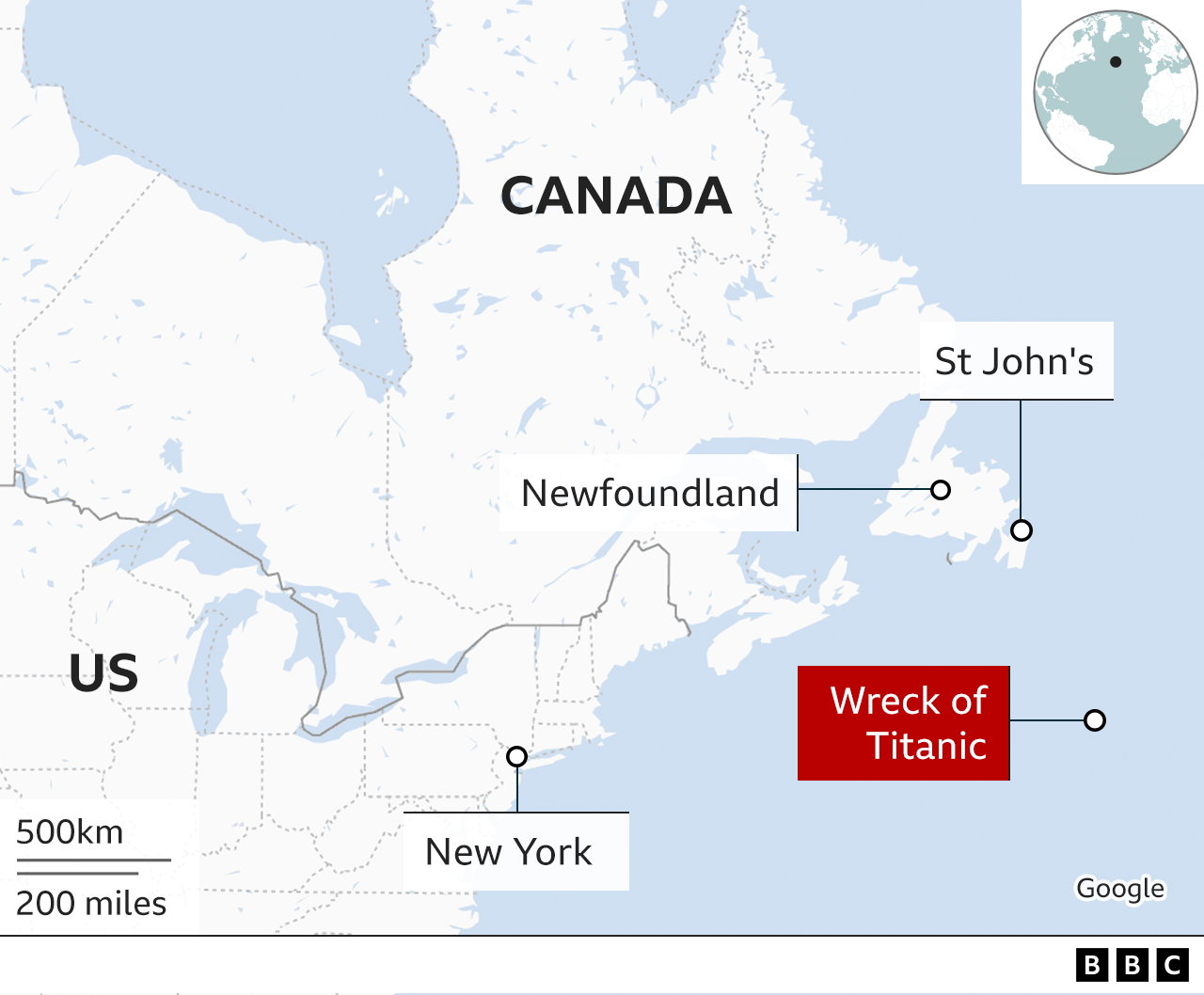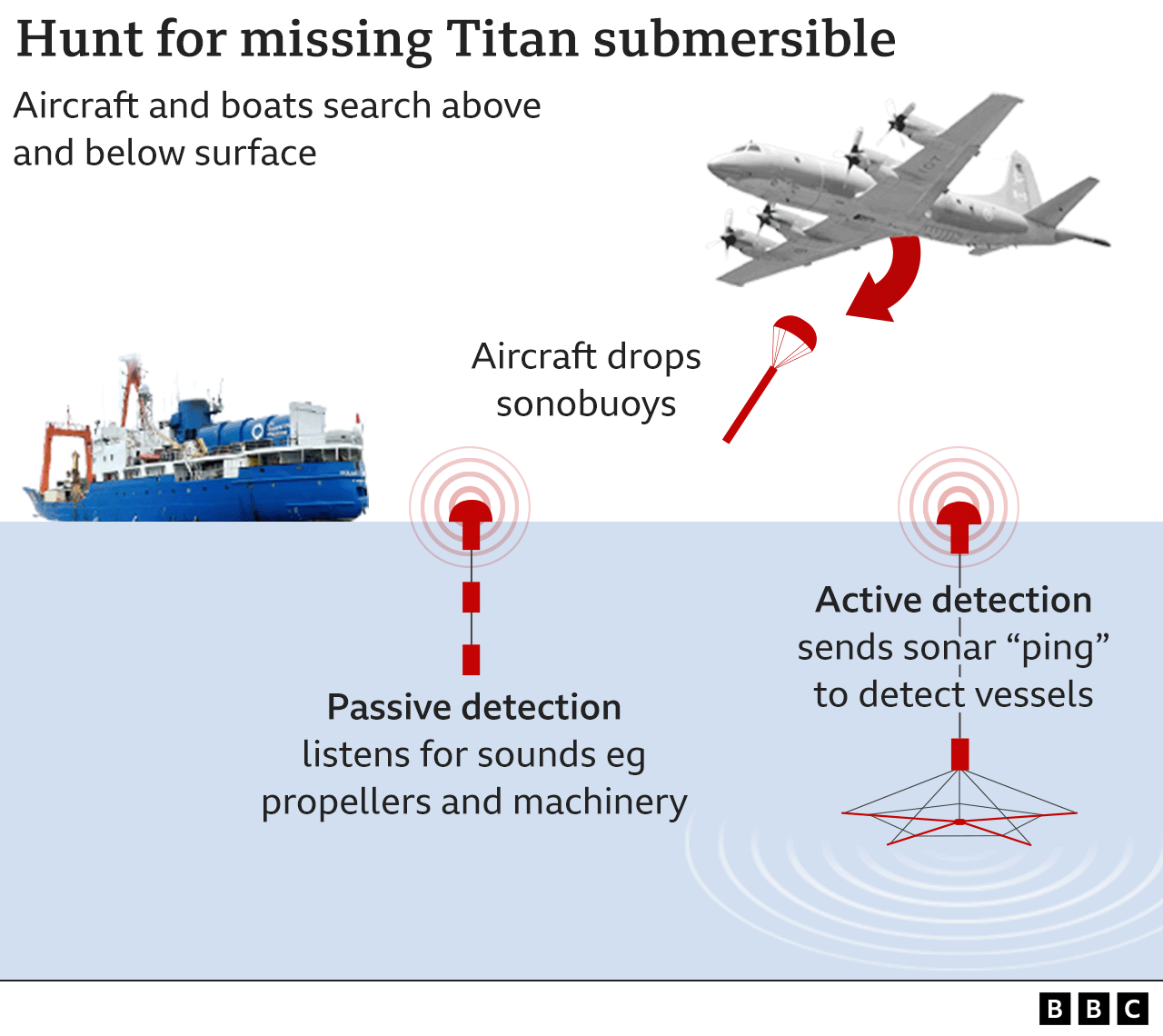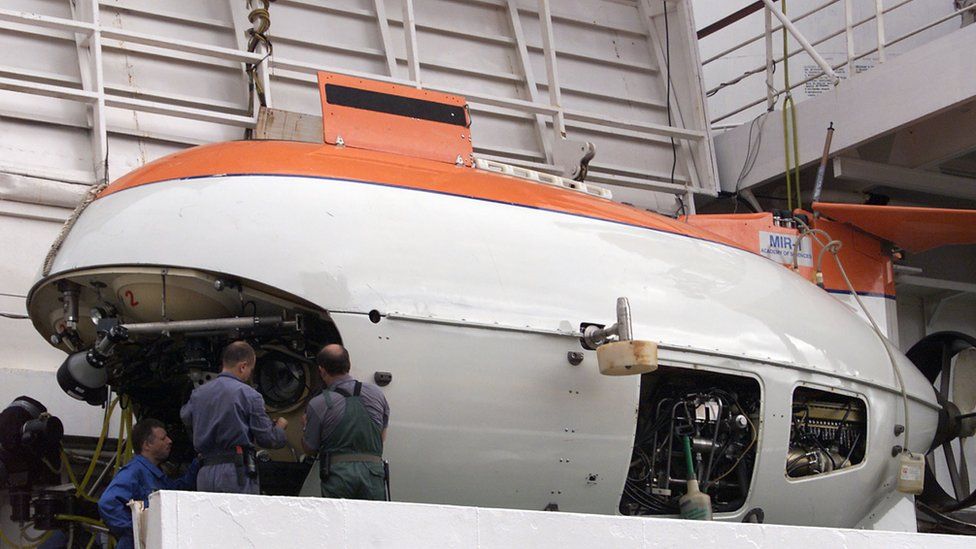US journalist Michael Guillen recalls his terrifying experience of being trapped in a similar vessel during a dive in the North Atlantic back in 2000 as a massive search for a missing tourist submersible with five people on board continues near the Titanic wreck.
"I was the first reporter to ever file a story from the Titanic's wreck. As the science editor for the American ABC network at the time, Dr. Guillen admitted to BBC Radio 4 that "it was only natural that I was excited.".
He recalls that they descended in a little Russian submersible that was lowered from the Akademik Mstislav Keldysh research ship along with his diving partner Brian and Russian pilot Viktor.
The crew chose to move to the distant stern after touring the bow of the Titanic, where "everything had gone well.".
After colliding with an iceberg, the Titanic sank on April 15, 1912. The British passenger ship broke up into two pieces before it went down.
"We were caught up as we flew over the so-called debris field and drew near the stern area. in an extremely swift underwater current. As a result, we wound up getting stuck in the propeller, which Dr. Guillen calls "huge.".
"There was just a crash, all of a sudden. We were only aware of the collision and the sudden debris. Just enormous, rusted Titanic chunks began to fall on top of us. ".
Physics professor and best-selling author Dr. Guillen recalls that "it was pretty clear to us almost immediately we were stuck.".
He claims the pilot was an ex-Mig fighter pilot from Russia who was attempting to shoo the submarine out.
It's similar to getting a truck or car stuck in the mud and trying to move forward, backward, forward, etc. merely to try to push yourself away.
"We all stopped talking. We didn't want to annoy or occupy Viktor. And we were aware of our predicament. So we simply remained silent. ".
Finally, the sub was able to escape "thanks to Viktor's talent," Dr. Guillen admits.
"We were just lucky. We got stuck for a good portion of an hour. And I had already said my goodbyes in my head pretty much in full.
"This is how it's going to end for you, is a thought that will always stick in my mind.
But ultimately, we felt that something had changed. We had the impression of floating. ".
As the pilot turned off the spotlight, the journalist recalls that everything took place in total darkness.
"We didn't want to speak up. The thought crossed my mind, "My God, is it possible that we are out of this?".
"I then turned to Viktor and said, "OK?," and that was it.
He only uttered slurred English. And I'll never forget how, in a low, growling Russian accent, he said: "No problem. '".
"I exhaled with a sigh of relief. ".
People on board the launching ship were aware of a "crisis" situation, according to Dr. Guillen, who stated that it took them about two and a half hours to return to the surface.
Only France and Russia, according to him, had subs that could withstand extremely high water pressure in 2000.
He remarks that his sub, a 7.8 m (26 ft) long Russian Mir sub, was nothing like the Titan, which is now missing. I've seen photos of Titan's interior, and it looks like a mansion. ".
"Two benches on either side - that was me and my diving buddy, and in the middle - the pilot," the diver recalled of the cramped ship.
"Water terrifies me. Dr. Guillen acknowledges that it was already difficult for him to do this, but claims that he was unable to refuse the chance to report from the Titanic's wreck.

The crew was briefed on what to expect inside the sub prior to the dive.
According to the American journalist, "we were briefed on a true story that had occurred when another man had been caught in the sub in a crisis.".
And he immediately went to the hatch. The hatch is directly overhead, so when you're trapped down there, your first reaction is to stand up and reach for it. believing that will allow you to get away.
"This man did that in a fit of panic, and he obviously didomed himself because as soon as he does that, all it takes is one crack; the water comes in - it's under such incredible pressure: it's just like a razor blade - it cuts you in half.
"I was extremely worried that someone would do this in the sub. I immediately raised my guard as a result, he recalls, adding that he was not panicking but was "prepared to gang-tackle anyone else in the sub who might panic.".
That served as a diversion from the crisis we were experiencing, he says, kind of giving him "a purpose, a reason to not think about anything else.".
"And then, being a scientist, I immediately began making a mental inventory: OK, how long is our oxygen going to last, what can we possibly do?".
He says the environment was "very hostile" and that he had to admit there was no way out. "I thought to myself how we could get out of this, and I reached a point that I really had to concede the really stark fact that there was no way out," he says.
"At that moment, a voice said, "This is how it's going to end for you. and simply felt a peace that seemed almost supernatural. ".
Dr. Guillen is unable to control his emotions when asked about the missing Titan submersible.
His voice cracks as he sobs, "My heart is breaking for these five poor souls down there.". "I understand exactly what they are going through. Simply put, it is beyond description.
"I am aware of their suffering. I'm just fervently praying.

. "







